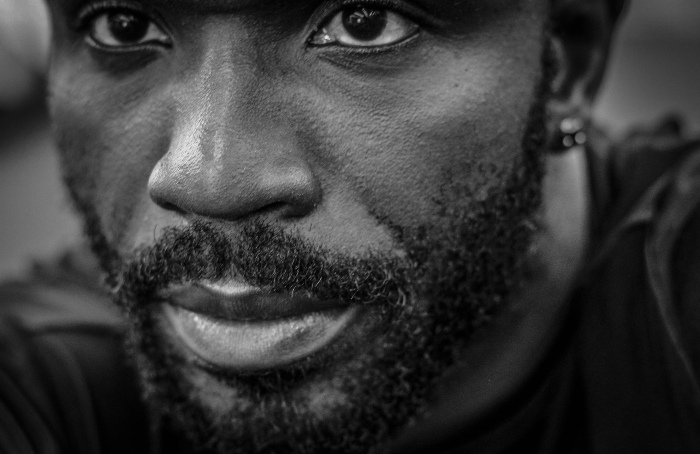Divorce is scary for everybody going through it, especially true for children since they probably don’t understand all the pieces that are moving behind the scene. Since a child’s life is changing just about every day on the regular, it’s important for them to have a steady foundation that they can rely on, and this often takes the form of their family and home life. During the process of divorce, your child is likely to see no bigger threat to this sense of security and stability. With their minds still developing necessary life skills, such as how to properly identify and express their emotions in a productive manner, it shouldn’t come as a surprise that many children will especially struggle with this task while their parents are getting divorced. This means that it is up to you and your partner to pick up their slack, pay attention to your kids, and help them through this difficult time. Regardless of the divorce, you are both still partners as parents to your children.
Talk To Your Kids
As soon as possible. Since children are often lacking in their reasoning abilities, it is very easy for them to misidentify the cause of the divorce as themselves, or adopt the feeling that their parents don’t love each other anymore so therefore their parents don’t love them anymore either. While those observations may be very incorrect, they are also extremely common thoughts, feelings, and fears for children when their parents are going through a divorce. The best way to combat these misinterpretations is to get ahead of them, and as soon as you and your partner decide that it’s time to get a divorce, you must sit your children down and speak to them. It’s okay to take some time first and familiarize yourself with some helpful ways to address this topic and their concerns. That being said, make sure that while you and your soon-to-be-ex partner are familiarizing yourselves, you do not start the process of divorce or start acting differently towards each other. Children are very perceptive and are sure to pick up on your subconscious expressions towards each other. When the time finally comes to sit them down and have the discussion, be sure to emphasize that this decision does not affect how either of you feel towards your children, and that this decision has not in any way been influenced by them.
Keep The Children Separate
This doesn’t mean to split the kids up or anything radical, it simply means to keep all the logistical and legal aspects separate from the lives of the children, along with any negative emotions and conflict. As mentioned in the introduction, the process of divorce itself is already extremely disruptive to a child’s sense of stability in the world, and including them in conversations about legal and logistical issues, unless absolutely necessary, is only going to add to the stress and intimidating aspect of the situation. Similarly, any negative emotions and conflict are likely going to act as fuel to the fire of how your children are going to feel and react during the entire process of the divorce. Children often feel scared and that fear frequently turns into anger, so even if you do your absolute best to keep the children separate from negative emotions and conflict, you should still expect emotional outbursts from you children from time to time, the severity of which usually depends on their age, since children are still learning how to properly comprehend their emotions and express themselves.
Include The Children
Yes, this sounds very counterproductive to the point above, but it is in a completely different vein. While the above point discusses making sure that your children are kept separate from situations and conversations that are not relevant to them, it is similarly important to include your children in conversations and decisions that are relevant. Some examples of conversations that are relevant may regard custody, and schedules for joint custody situations. Including your kids in these conversations and asking for their input is a great way to present them a chance to regain some security in the situation, as not everything will be changing around them without their consideration. Perhaps one of the biggest decisions that children should have their input is the location that you or your partner moves to. It’s common in divorces for one parent to move out on their own, as a significant part of the decision to divorce is to get separation from the other person and the relationship. However, where the parent moves to also affects the children, especially in joint custody cases where the children will be spending some of their time in that new home as well. Including the children on the decision of where they would like to spend some of their time will make them feel less afraid and unfamiliar with whichever home is chosen. In some cases, the divorce can put financial strain on the parent that relocates and affording a home that satisfies both the parent and the children can be difficult, but not impossible. There are a good number of resources on home loan options with difficult financial situations in mind, such as those backed up by the Federal Housing Administration. These loans can offer flexible down payments, credit scores, and loan durations in order to increase their accessibility. The bottom line is that children need to be the focus of, and included in, any discussion that involves how their life will change as the result of the divorce.
Conclusion
Divorce is a field of unknowns, and not knowing the outcome of a situation is scary for everybody involved. While the effects of divorce are commonly thought of in terms of the splitting parents, it’s important to consider the children that will be affected, as they often have less power and say in the situation. As long as the parents make their decisions with a focus on transparency and open conversation with their children, it should be much easier for everyone involved to get through a divorce with as few negative repercussions as possible.

Readers Might Also Like:
 Cuffing Season Isn’t Cancelled! Your Guide To Cuffin’ In a Pandemic
Cuffing Season Isn’t Cancelled! Your Guide To Cuffin’ In a Pandemic
It’s Not You Ladies – The Truth About Men, Mid-Twenties & Relationships
 5 Attractive Gifts for Men with Beards
5 Attractive Gifts for Men with Beards
 Natural Hairstyles If You’re Looking To Switch your Style Up
Natural Hairstyles If You’re Looking To Switch your Style Up


